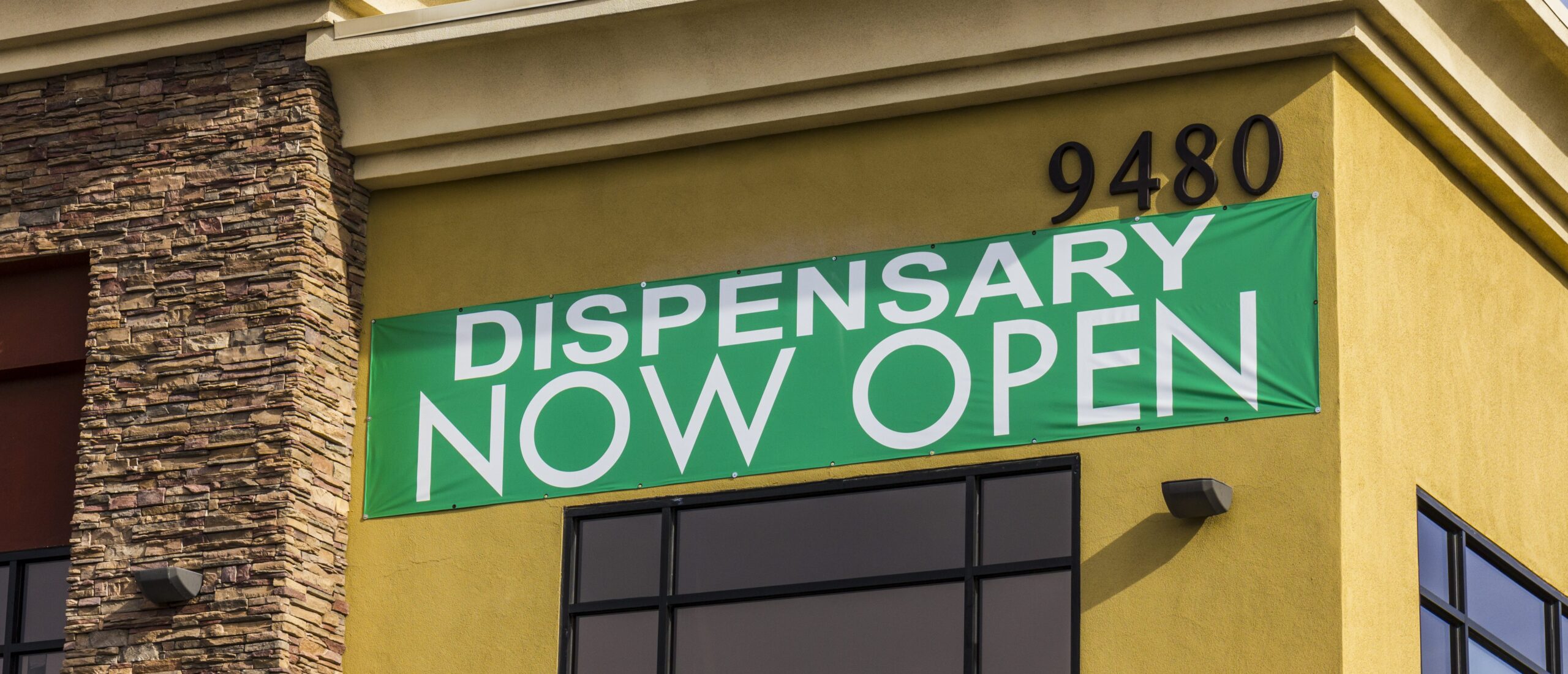
If cannabis is legal at the state level but illegal federally, does First Amendment protection of “commercial speech” include promotion of cannabis?
In a novel ruling in Washington State, a judge said yes . . . the long reach of the First Amendment extends to pot promotion.
“. . . the commercial speech at issue here (signage for a cannabis dispensary) is entitled to constitutional protection,” wrote King County Superior Court Judge David Keenan (Plausible Products, LLC d/b/a Hashtag Cannabis v Washington State Liquor and Cannabis Board, November 18, 2019).
The federal government classifies marijuana as a controlled substance, like heroin. Thirty-three states have legalized medical marijuana; adult recreational use is legal in 11 states. The federal-state dichotomy creates friction in banking, interstate commerce, and . . . advertising.
Lights in the window
During the 2017 Christmas holiday season, a cannabis dispensary called Hashtag in King County (Washington State) spelled out the word “POT” with a string of lights in a window. State regulators alleged this window sign violated restrictions on content (“POT” was not a trade name of the business), size, and affixing. The dispensary challenged the constitutionality of the State’s sign restrictions, and won.
In legal disputes involving commercial speech, courts typically rely on an established legal standard known as the Central Hudson test.
The US Supreme Court, in 1980, created a multi-prong test to determine when commercial speech can be regulated under the First Amendment (Central Hudson Gas & Electric v Public Service Commission of New York).
The first Central Hudson test: for commercial speech to be protected under the First Amendment, it must concern lawful activity and not be misleading.
In the recent Hashtag court case, the State argued that “[f]or purposes of the first Central Hudson test, marijuana activity cannot be considered to be ‘lawful activity’ where its use, possession, manufacture, and distribution remains illegal under federal criminal law.”
This issue is “novel,” the judge said. He decided that commercial speech for a cannabis dispensary that is lawful under State law passed the first test under Central Hudson, and ruled in favor of the cannabis dispensary.
The next three Central Hudson tests:
- Is the government’s interest substantial?
The parties did not dispute that government has a substantial interest in regulating the cannabis marketplace.
- Does the regulation (of commercial speech) directly advance the government’s interest?
No, the court said. The government’s claim that strict limits on dispensary store signs advanced its interest in preventing underage consumption was undermined by stores’ ability to advertise on billboards.
- Is the restriction on commercial speech narrowly tailored to meet the government’s interest?
No, again.
“The advertising restrictions are more extensive than necessary, because minors are already prevented from entering marijuana retailers and buying marijuana,” Judge Keenan wrote.
Conclusion
Compared to alcohol and tobacco, legal cannabis is new. Regulation of cannabis and its marketing is likely to generate disputes about the proper balance between free speech and protection of other societal interests.
A local judge’s ruling in Washington State is an early data point, but not settled law. It’s worth noting, however, that the local judge in the 2019 Hashtag case referred to important First Amendment cases on alcohol and tobacco:
- Rubin v Coors Brewing Co. (1995); the Supreme Court invalidated a federal prohibition on displaying alcohol content on beer labels (as a First Amendment violation that failed to advance the government’s interest in a direct, material way).
- Lorillard Tobacco Co. v Reilly (2001); the Supreme Court said Massachusetts’ point-of-sale and outdoor advertising regulations on smokeless tobacco and cigars violated the First Amendment.
Published: January 9, 2020